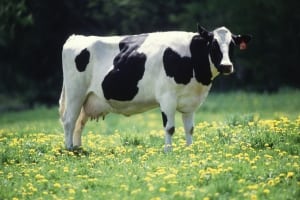 Cow’s milk is one of our parent food staples. It’s always needed, it’s always on the list, and it’s given essentially every morning for breakfast and throughout the day for some families. Most of us grew up thinking that cow’s milk is supposed to be good for you. Milk has the necessary vitamins and minerals that we need to be strong and healthy. Kids need milk. Or moo they?
Cow’s milk is one of our parent food staples. It’s always needed, it’s always on the list, and it’s given essentially every morning for breakfast and throughout the day for some families. Most of us grew up thinking that cow’s milk is supposed to be good for you. Milk has the necessary vitamins and minerals that we need to be strong and healthy. Kids need milk. Or moo they?
In a recent study on adults, researchers found that cow’s milk may not be all that it’s poured out to be. The study followed 61,433 women and 45,339 men over age 40. They followed the women for 20 years and the men for 11 years, monitoring deaths, fractures, and hip fractures. It turns out that “high milk intake was associated with higher mortality in one cohort of women and in another cohort of men, and with higher fracture incidence in women.”
This study result is that both men and women drinking more cow’s milk might be causing them to fracture, and even die, at higher rates.
So, if cow’s milk negatively affects adults, how is it affecting children?
We know that cow’s milk can be a big allergen in kid’s lives. About 65% of individuals after infancy have difficulty digesting lactose. This study in the Journal of Food Protection discusses the immunity challenges cow’s milk can pose. Researchers found that heating the milk may disable some of the proteins causing reactions in children, though more studies are needed to justify the findings.
Pasteurized and Homogenized
The FDA has a couple of tips about choosing milk on this online page about raw milk. The FDA and the CDC both reported that pasteurized is the way to go. “CDC reported that unpasteurized milk is 150 times more likely to cause foodborne illness and results in 13 times more hospitalizations than illnesses involving pasteurized dairy products.” Pasteurized milk is altered to be sure that there aren’t any harmful bacteria or disease-carrying molecules in the milk. Additionally, pasteurizing helps prevent souring. The process involves heating and rapidly cooling the milk. There are no additives.
You also will mostly find that the cow’s milk you buy at the grocery store is homogenized as well. Homogenization is simply a way of breaking down molecules to ensure that milk is mixed thoroughly. Without homogenization, your milk will separate and form a layer of cream on the surface. Cow’s milk producers will also separate out some of the fat to create one percent, two percent, and skim milk during this process.
While the FDA and the CDC found that this doesn’t alter the milk significantly, many will disagree. Luckily, there are many other ways to get the nutrients other than from cow’s milk. We at GHT recommend a number of other alternatives.
Milk Alternatives
We like nut milk, like almond milk. We find that coconut milk is a good source of fat. Rice milk can be especially good for kids with allergies. Hemp milk is lactose- and gluten-free and contains a lot of the vitamins that your kids need. Some parents choose to use goat milk, as well. Keep in mind that you may need to provide your kids with supplements if you choose an alternative to cow’s milk.
We also think that many things can be good with moderation. Some choose to supplement cow’s milk with another kind of milk but keep some of the other cow’s milk dairy in the fridge. For questions about what is best for your child, keep the conversation alive with your practitioner. We are always udderly pleased to help you choose what is best for your family. For questions or concerns, please respond to this page or contact us!




